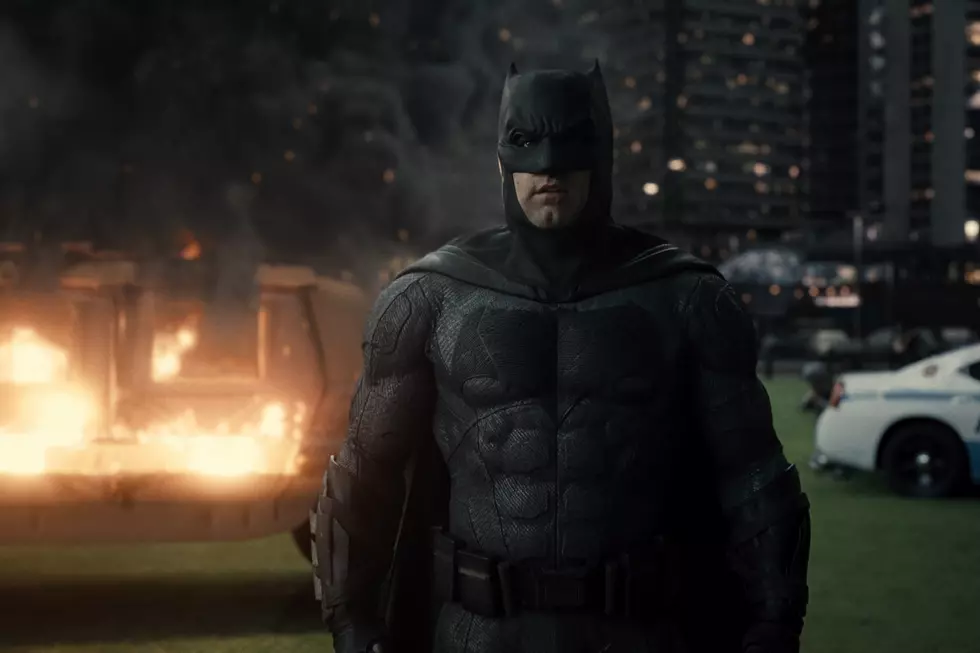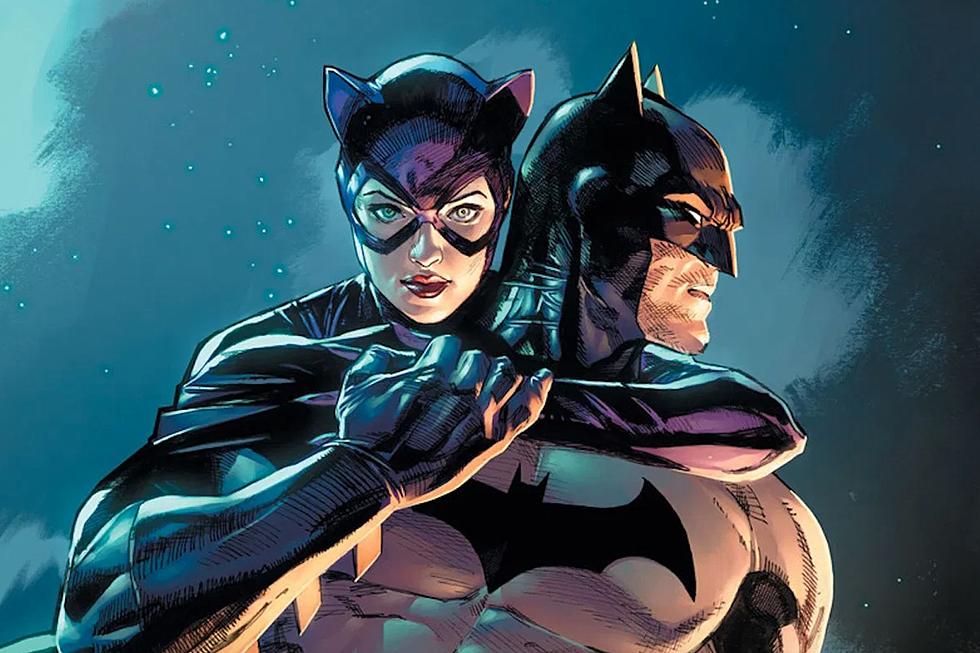
Rob Liefeld, Deadpool and True Creator Credit
With the Deadpool movie arriving in cinemas this week, media attention has turned to the character's co-creator Rob Liefeld, and it’s already caused a fair share of controversy. As part of an interview with the New York Times, Liefeld stated that he did “all the heavy lifting” in the creation of Deadpool, and even more bluntly, “I chose Fabian [Nicieza], and he got the benefit of the Rob Liefeld lottery ticket. Those are good coattails to ride.” Liefeld has called the article a "hit piece," but has made similar assertions on Twitter.
Liefeld’s words raise interesting questions about who gets to call themself the true creator of a character. Is it just the initial concept, idea, or design that warrants a creator credit, and does time spent defining a character count for anything?
Liefeld’s claim that he's the only creator of Deadpool that matters echoes Bob Kane and his claims to Batman’s creation. It’s true that Kane had the idea for a costumed vigilante named The Bat-Man, but as in Ty Templeton’s excellent BunToon, without Bill Finger, we simply would not have the Batman that we know today.
Despite Finger’s considerable contribution to the creation of Batman, he was shut out of that legacy for decades, and it was only last year that he received co-credit, carefully phrased as “Bob Kane with Bill Finger.” Bob Kane made a career out of erasing Finger’s contributions to one of the most iconic and adaptable characters of the 20th century, and it was only after Finger’s death that Kane hinted (perhaps insincerely) that he wished Bill Finger got more credit.
Just like Bob Kane, Rob Liefeld designed Deadpool and plotted the stories first featuring the character, but if you go back and read those old New Mutants and X-Force comics, the character is very different to who he is today. Deadpool was one of Liefeld's many grim mercenary-type characters, and it was the contributions of Nicieza, Mark Waid and especially the team of Joe Kelly and Ed McGuinness on the character’s first solo ongoing book, that defined the Merc With A Mouth as we know him.
Early reports from the Deadpool movie indicate that the film leans heavily on the Kelly/McGuinness run for inspiration, in terms of its humor, and even in the inclusion of supporting characters such as Weasel and Blind Al. Kelly and McGuinness, more than anyone, truly defined who Deadpool is, and everything that comes after is built on their foundation as much if not more than it is on what Liefeld contributed.
What Liefeld is claiming credit for is not very different to what artists like Jack Kirby and Steve Ditko did in the Silver Age of Marvel; not only providing art, but also doing most of work when it comes to plot and story. The difference is that no-one has ever been accused of downplaying the recognition Stan Lee gets for the creation of Spider-Man; in fact his recognition often comes at the expense of those legendary artists.
It’s a situation that gets a bit stickier as you expand past the murkiness of Kane and Liefeld, and apply it to other characters. No-one claims that Roy Thomas, Len Wein and John Romita aren’t the sole creators of Wolverine, but when so much of his backstory and personality was defined by Chris Claremont, in Uncanny X-Men and beyond, should he also receive some form of credit?
Claremont has mentioned in the past that although the X-Men movies rely heavily on his work with Wolverine and the X-Men, the most recent Wolverine film didn't even include his name in the credits. When Hugh Jackman thanked Claremont for his success in Hollywood, Claremont later remarked that he "would have preferred a check."
Liefeld may yet have a legitimate argument to make, and although he could have worded it better, his claim that, "If a janitor scripted New Mutants 98, he’d be the co-creator," is not entirely wrong. Without taking anything away from Nicieza, who is an accomplished writer with decades of experience in the industry, that is how the attribution of creator credit works --- but we can't say how different the Deadpool co-created by the janitor would have been.
Proper credit is not always as clear as, "Who wrote and drew the first appearance?" Jaime Reyes first appeared in a Geoff Johns/Phil Jimenez comic, but is considered the creation of Keith Giffen, John Rogers and Cully Hamner. Similarly, the Ryan Choi incarnation of The Atom was based on a design by Grant Morrison, but first appeared in a story by Gail Simone and John Byrne.
Liefeld claims that he created Deadpool entirely on his own, and the character made his first appearance in a comic written by Fabian Nicieza. If that's the case, it's somewhat similar to Hellboy, who was created solely by Mike Mignola, who then pitched the character to DC, before publishing the first Hellboy comics through Dark Horse with John Byrne as the writer.
Another complicated case study is Bucky Barnes, who was created by Joe Simon and Jack Kirby --- but Ed Brubaker and Steve Epting are credited as the creators of The Winter Soldier. In that case, the line between the two incarnations is a bit clearer than with other characters defined by multiple teams, but if Marvel were to send out a royalty check for the character's use in Captain America: Civil War, would and should Brubaker and Epting be the recipients? (This may be an entirely theoretical question. As far as we know, neither Marvel nor DC has a formal mechanism for paying royalties to authors when their work is adapted, though some informal arrangements reportedly exist.
The more questions you ask about who really created a character, the more questions you'll uncover, as comics’ singular narrative reaches through decades, and the way they are created shifts and changes.
However, on what would have been Bill Finger’s 102nd birthday, it’s sad to once again see an artist try to downplay the recognition of a writer --- just as it's equally sad when writers do the same to artists --- to increase their own share of the glory.
More From ComicsAlliance









